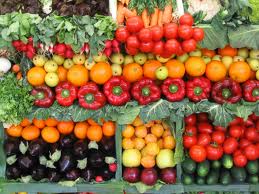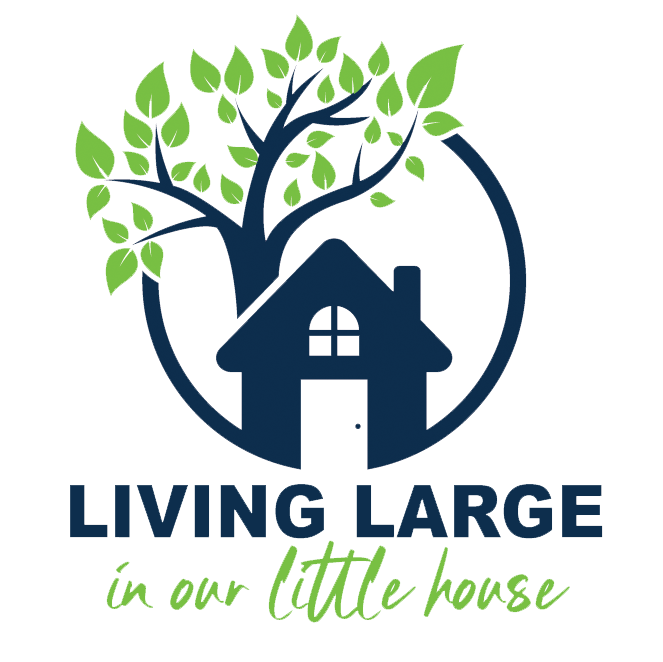Do You Really Need That Veggie Wash for Fresh Produce?
Our local natural food store was stocked up on so much fresh produce this week that I had to stop myself from shopping, it all looked so good.
When a neighbor asked what I bought, my husband interjected, “What didn’t she buy!”
I’ve heard a lot of people talking about how they wash their fresh produce lately. I admit, I’ve been tempted to purchase some of those pre-mixed produce washes in the grocery store, but is that really necessary?
I really didn’t start thinking about bacteria on produce until the outbreak that involved cantaloupe a while back.
At that point, I started washing everything before cutting into it, even if we didn’t plan on eating the skin.
But, am I getting everything really as clean as it needs to be?
I went to some trusted sources for the answers, including university researchers and the FDA.
The short answer about veggies washes confirms my instincts; the FDA does not recommend you use veggie washes to get your produce ready to eat.
One of the reasons for this is exactly what I suspected – some of these washes contain chemicals such as chlorine. Especially if you purchase organic produce, as we normally do, why would you then want to put a chemical on them?
I wash all of our fruits and vegetables with cold water, even those with hard skins that will not be eaten before I cut into them. I use a brush on hard skinned produce that I intend on eating, such as red potatoes.
If I cannot buy organic, I make sure what I’m buying is not one of the Dirty Dozen.
Here is how the University of Maine recommends you wash your produce to help keep your family safe:
- Wash your hands with hot soapy water before and after preparing food.
- Clean your counter top, cutting boards and utensils after peeling produce and before cutting and chopping. Bacteria from the outside of raw produce can be transferred to the inside when it is cut or peeled. Wash kitchen surfaces and utensils with hot, soapy water after preparing each food item.
- Do not wash produce with soaps or detergents.
- Use clean potable cold water to wash items.
- For produce with thick skin, use a vegetable brush to help wash away hard-to-remove microbes.
- Produce with a lot of nooks and crannies like cauliflower, broccoli or lettuce should be soaked for 1 to 2 minutes in cold clean water.
- Some produce such as raspberries should not be soaked in water. Put fragile produce in a colander and spray it with distilled water.
- After washing, dry with a clean paper towel. This can remove more bacteria.
- Eating on the run? Fill a spray bottle with distilled water and use it to wash apples and other fruits.
- Don’t forget that homegrown, farmers market, and grocery store fruits and vegetables should also be well washed.
- Do not rewash packaged products labeled “ready-to-eat,” “washed” or “triple washed.”
- Once cut or peeled, refrigerate as soon as possible at 40ºF or below.
- Do not purchase cut produce that is not refrigerated.
Do you wash all of your veggies? Do you use water or a veggie wash?









I don’t know why they say dish soap is bad and may leave residue, we use them on our dishes.. I do use a veggie cleaner, but it is made with natural citrus oils and natural things…
I think, Valerie, it has to do with porous surfaces that have grooves, maybe like cantaloup. Many commercial dish soaps, also have bad chemicals, although it is supposed to be safe to wash our dishes with.
We grow most of our veggies, if they are muddy (or in the case of lots of ti-tree blossom lately) I just put the veggies in a large quantity of clean cold water with a little salt added. (found it interesting to hear some people use vinegar)
Yes, I had heard so much about veggie washes since we went to a plant based diet, I was surprised at all of the different washing methods. I only use water, but wash them thoroughly.
I live in Canada and i buy mostly organic, and i only use soap on melons and cold water on most veggies and fruit, but i often buy an apple at the store and just eat it, and if the potatoes are clean i dont usually wash them, there is actually a lot of things i don’t wash. i think its good for your immune system to deal with the yuk of this world in small quantities
I tend to agree with you, Linda. We went to an all plant based diet and unless a vegan uses a B12 supplement, which is recommended, the only way to get B12 is in the soil that is collected on the tops of veggies such as carrots. If we grow our own, I’m not as careful about washing because I know what’s on it. However, even buying organic produce as we do, sometimes there can be e-coli and other contaminants.
I soak mine in vinegar water for 30 minutes. Berries and grapes don’t get soaked though, it’s too hard on them!
When I sit and eat grapes, I put them in a bowl of water and the drain it and wipe off each one as I eat them. 🙂
I sprinkle a little baking soda on my fruits and veggies and scrub with my hands or cloth/abrasive pad under cold running water.
That sounds like a really good method, Jen!
Cantaloup and other fruits that ripen on the ground are very likely to harbor bad germs.
Since we do not eat the rind (and cook the rind to make watermelon pickles) I wash melon outside with soap and water and rinse before cutting to avoid pushing any missed bacteria onto the
eating part.
The experts say to avoid washing with soap, as it can leave residual chemicals, but if it works for you….I think I would soak in the vinegar water instead, though.
The research said if you do want to soak your veggies, to make sure it’s in a bowl and not your sink, where a lot of germs tend to hang out. 🙂
I wash everything and soak for 15 minutes in white vinegar, then rinse.